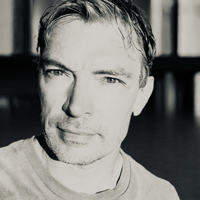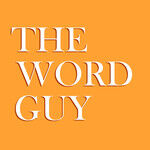Today I woke up 59. Not Paul, 58, anymore. I'm now Paul 5.9, if we're being Silicon Valley about it.
The thing about turning 59 is that nobody talks about it. There's no cultural touchstone here, no milestone moment. Fifty felt significant. Sixty will demand reckoning. But 59? It could be the aging equivalent of a middle seat on a cross-country flight — unremarkable, slightly uncomfortable and something you just endure and never think about again.
Yet, if I'm honest, 59 turns out to be unexpectedly clarifying.
Maybe it's because 59 sits close enough to 60 that I can no longer pretend I'm in "early" anything. Or maybe it's that mathematical precision: I now have, as the saying goes, more yesterdays than tomorrows. The actuarial reality hits hard.
Lifestyles of the old and healthy
But on this occasion, allow me to share some hard-won wisdom: The people who age well aren't the ones following the Wellness Industrial Complex playbook. They're not spending $1,000 a month on supplements, like Mr. "Don't Die" Bryan Johnson, or getting their longevity advice from Andrew Huberman in between his paid product placements. They're just consistently doing the unglamorous work — strength training, eating whole food, moving their bodies daily — to no applause.
Earlier this year, Harvard's public health school published a widely covered, comprehensive study that tracked the eating and exercise habits of 105,000 health professionals, to examine which diets correlated to the greatest health spans. But here's what most of the media failed to report: Only 9.3% of 105,000 health professionals made it to 70 in genuinely good health.
Fewer than 1 in 10 people. Also: two-thirds didn't even survive to 70.
Biohacking is not the answer
So what does action look like at 59?
It's not about biohacking or reversing aging or any of the other magical thinking that sells supplements and seminar tickets. It's about building a foundation that lets you be useful, engaged and physically capable for however long we each have left.
For me, that means continuing to regularly lift some kind of weight — a bag of sand, a dumbbell, my fifth grade child — for at least a few minutes a day. Because, with all due respect to grip strength, walking speed and balance tests, I think remaining physically strong is probably the single best predictor of aging without needing medical help. But strength training isn't free. It requires foam-rolling almost every morning and night, to stave off lower back and QL pain.
Of course, if you eat like your 25-year-old self, you can have a great gym body and die at, well, 59, from cardiovascular disease — one of the Big Three most common killers, along with cancer and dementia. I've changed my eating habits away from lunch meat and other processed foods toward whole foods that have minimal ingredients. But it's not easy. Maintaining a Sardinian hilltowner’s diet while juggling work, friends, and a fifth grader’s needs and wants requires, I’ve found, a bag of Cheetos per quarter.
Aging gracefully is a fantasy
The statistical reality is that the decade ahead will likely bring losses — possibly of my one remaining parent, potentially of a few friends, probably of my current physical ability — while maintaining what super agers have: purpose, curiosity and a robust social life.
At 59, you realize that "aging gracefully" is just code invented by the cosmeceutical industry to sell older women expensive skin cream. Real-life aging requires working for every year of vitality, strength and mental perspicacity you can maintain. It's not graceful; aging isn't ballet. It's sometimes joyful, often humbling, always demanding.
The people who matter most in my life — my daughter, my mom — need me strong enough to carry luggage off a Eurail train during three-generation trips, mentally sharp enough to help solve problems, emotionally resilient enough to weather whatever comes.
Which brings me to the most important thing about turning 59: It's not about adding years to your life but, if you'll pardon the cliche, life to your years. The Harvard data suggests many if not most people won't make it to 70 without a chronic disease. That's sobering — and actionable intelligence.
Hang in there, Paul 5.9.
To find out more about Paul Von Zielbauer and read features by other Creators Syndicate writers and cartoonists, visit the Creators Syndicate website at www.creators.com.
Photo credit: Miguel Bruna at Unsplash






View Comments